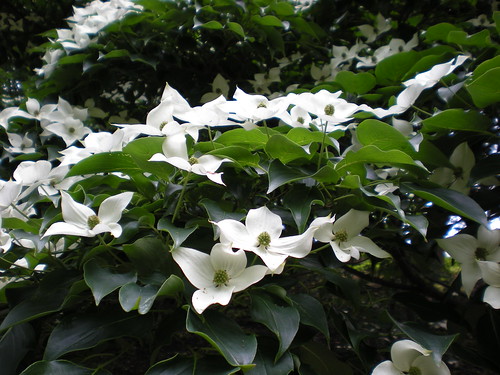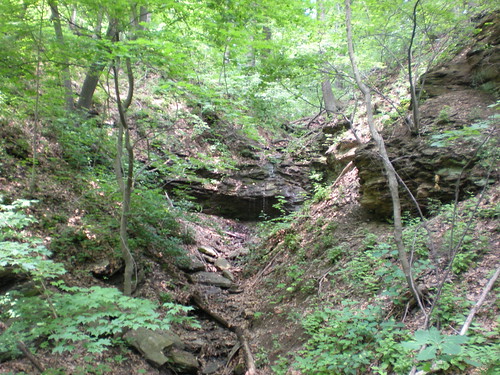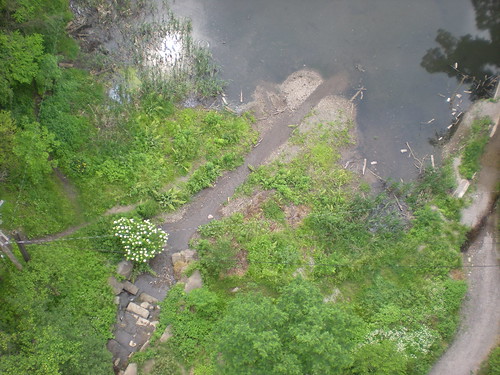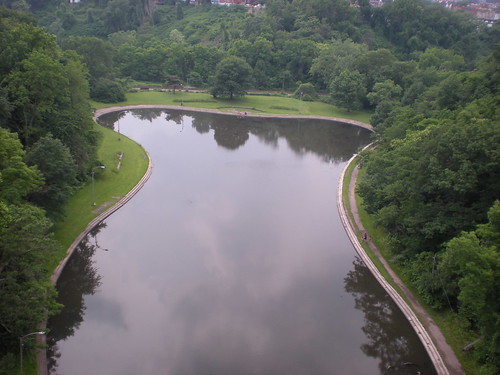When I first arrived in Pittsburgh I went and checked out Schenley Park which will be at least the partial subject of my project. Schenley Park, and specifically the watershed of Panther Run, are the subject of a restoration and outreach project that will include habitat restoration and also will include communication with nearby residents on ways to reduce pollution in their watershed. Pittsburgh, like many old cities, has a combined storm drain and sewer system. This means that any time it rains more than about a tenth of an inch, all the water rushing into the sewer from concrete, asphalt, and rooftops, quickly overwhelms the sewer system and sends stormwater, along with gross raw sewage, right into the rivers. By taking simple measures such as using rainwater cisterns and creating rain gardens and constructed wetlands, residents can greatly reduce the amount of runoff after storms and thus the amount of sewage and pollution taht enters rivers. The Panther Run creek and lake act as a huge, mostly natural rain garden, and absorb much of the rain in the area that would otherwise add to polluting the rivers.
In any event, here is the park.

the top of a small creek.

Dogwood (?) flowers)

small grotto

Meadow!

View of the city from Panther Hollow Bridge

Small 'delta' created by erosion and runoff into Panther Hollow Lake. Part of the restoration effort aims to reduce this erosion, which is causing the lake to fill in with sediment.

Panther Hollow Lake - although this is not a natural lake, it does serve to reduce runoff and decrease water pollution.








No comments:
Post a Comment